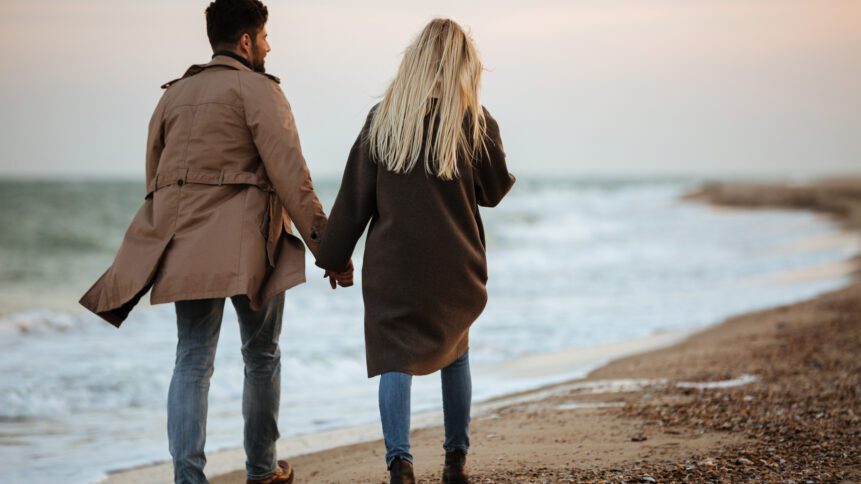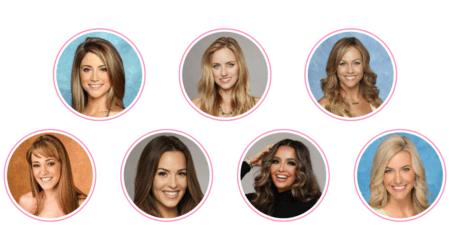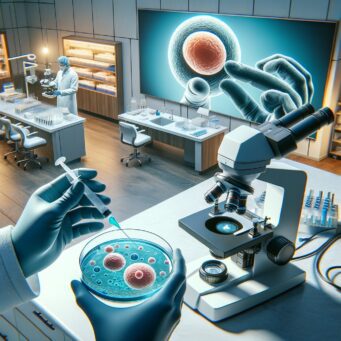
To look at me, you might think I’m young, healthy, and at peak fertility.
For as long as I can remember, people have told me that I don’t look my age. When I got my driver’s license at 16, I still looked like I was about 12. When I started working after college, I was frequently mistaken for an intern. Even now, almost 15 years out of college, people are shocked to learn my age when they see me.
Yet looking youthful doesn’t reflect what’s going on in my body—that, at 37, I have diminished ovarian reserve (DOR), something that usually women significantly older than me experience—and I’m having trouble getting pregnant.
I’ve been open about my infertility journey online, and one person responded to my social media posts: “I don’t understand how your body is aging prematurely on the inside when you look so young on the outside!” Another said: “You drink smoothies, go to yoga, and ran a half-marathon—you’re the definition of healthy!”
I may be “young” and healthy, but diminished ovarian reserve does not discriminate. It can affect women as early as in their 20s. It can affect women who work out five times a week and eat kale as well as women who aren’t active and eat fast food.
DOR impacts women of every race, ethnicity, age, socioeconomic status, ability level, and sexual orientation, in countries all around the world.
Understanding that it could happen to anyone doesn’t make accepting the diagnosis less difficult.
I may be ‘young’ and healthy, but diminished ovarian reserve does not discriminate. It can affect women as early as in their 20s. It can affect women who work out five times a week and eat kale as well as women who aren’t active and eat fast food.
My husband and I started had trying to have a baby just before I turned 37. Month after month, I became increasingly disappointed to see a straight line instead of a plus sign on the pregnancy test. Knowing that I was in the “high-risk/over 35” category of women trying to conceive, after seven months I went to a local fertility clinic and consulted with an RE (reproductive endocrinologist).
The first step involved blood tests and ultrasounds to understand what my ovarian reserve—the quality and quantity of my eggs—was like. We got our answer pretty quickly. My shocking, deeply disappointing answer. I am one of the 10% of women diagnosed with an ovarian reserve that is much lower than expected for their age. It’s well known that ovarian reserve declines with age, but it’s not always known why else it declines or declines sooner than expected. In most cases, there are no symptoms and doctors often can’t pinpoint the cause.
While there are many hormones and factors that go into analyzing DOR, the two big ones are AMH (anti-mullerian hormone) and FSH (follicle stimulating hormone). Prior to going to a fertility clinic, I hadn’t even heard these acronyms.
AMH levels under 1 and FSH levels above 10 meet the diagnosis for a diminished ovarian reserve. Tests revealed that both of my numbers were not where they should be, but more like those of a woman in her early 40s.
Throughout this journey, my inner circle has been super-supportive—especially my husband. He is a few years younger than me, which is something I never think about, except when it comes to fertility and infertility.
Having a family has always been very important to us. Now, I feel guilty that my challenge is his challenge, although I know that’s exactly what we promised one another in our marriage vows. When I get particularly upset, I say things to him like, “You should have just married someone your age, and then you wouldn’t have to deal with this!”
While he reassures me and tells me how silly that sounds, I still feel responsible for the problem and blame myself. Guilt is a hard thing to shut off.
Having a family has always been very important to us. Now, I feel guilty that my challenge is his challenge, although I know that’s exactly what we promised one another in our marriage vows. When I get particularly upset, I say things to him like, ‘You should have just married someone your age, and then you wouldn’t have to deal with this!’
When infertility is always the main topic of conversation, it can be draining on a relationship, but I’ve noticed that this journey has actually brought us closer as a couple, as a team. We make all decisions together, but he acknowledges that the decisions we make mostly affect my body, so he only wants to do things that I am comfortable with.
Because of my diminished ovarian reserve, our doctor explained that we’d have less than a 3% chance of conceiving naturally without help. Our options were to start IUI (intrauterine insemination) or IVF (in vitro fertilization). She also told us that women diagnosed with DOR have a lower response to stimulating medications used in both IUI and IVF compared to women their age whose ovarian reserve testing is normal—as well as a higher risk of miscarriage, one of my greatest fears. Knowing all of this, we have started with IUI because it’s less expensive.
A diminished ovarian reserve diagnosis has taught me many things, but the biggest lesson is that when it comes to fertility, what you see is not necessarily what you get.
I have taken great care of my body, work out four-to-five times a week, and eat a super-healthy diet, yet I may have had this condition for years. I wouldn’t have known because I felt and looked physically healthy. The only way I, or anyone, can know for sure is through testing.
Even though I get some relief knowing that we acted quickly to figure out what was going on, I wish I would have done fertility testing sooner, at 35, so I could have been more aware of factors that could affect my future as we tried to have a baby. Most women don’t think they will have a problem, and very well may not, but I’ve always believed that knowledge is power.
My husband and I may still be early in our family-building story, but it is already indescribably difficult trying to do this thing that seems so easily attainable for many others. Even with this struggle and things not going exactly as we had envisioned, I believe that our story can—and will—end happily, with me holding a baby in my arms.
For now, I’ll keep communicating about this challenge with my husband and those closest to me. One thing I know now is that I don’t have to suffer with infertility in silence. If anything good has come of this experience, it’s that I value those closest to me more than ever and know that I’m not alone on this journey.
Contributor
Jenna Bennett Williams
Jenna Bennett Williams is a 37 year old marketing professional in Minneapolis. She loves hanging out with her husband, dog, and cat and is obsessed with coffee, yoga, and ice cream. She hates needles, but is gradually getting over her phobia as she and her husband continue their journey to building a family.

Listen to stories, share your own, and get feedback from the community.


















